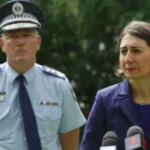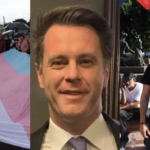Former NSW DPP Nicholas Cowdery Calls on NSW Government to Reform Drug Laws
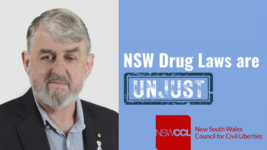
“We should all be accustomed by now to government promises – before and after elections – being broken or modified and this seems to be just another example,” former NSW Director of Public Prosecutions Nicolas Cowdery said, regarding the go-slow on promised state drug law reform.
“Last year, I was assured by a very senior member of the government that a drug summit would be held in February 2024,” this state’s longest serving DPP continued. “Now there are rumours of October 2024. I have also heard it said that this may be a second term commitment.”
The disappointment expressed by Cowdery in the lack of progress by the NSW government relating to the promised NSW drug summit has been echoed by drug law reformists, progressive politicians and an increasing number of lawyers, ever since the premier expressed second thoughts last August.
And Cowdery, a long-term drug law reformist, is representing the NSW Council for Civil Liberties, at next week’s NSW Drug Laws Are Unjust forum in Darlinghurst, alongside representatives from Uniting NSW.ACT, Unharm and ACON.
And the doctors, academics and lawyers will be discussing why drug law reform is way overdue in this state, as well as what those reforms should be, and they’ll be strategising on how to progress those pre-election commitments now the premier is hesitating.
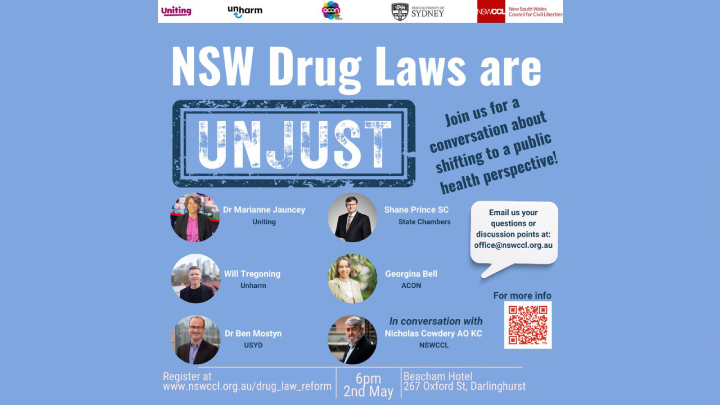
Broken promises
NSW premier Chris Minns took out the March 2023 state election on a platform that included drug law reform, to be facilitated via a NSW drug summit.
This pathway has precedent in this state, as the Carr Labor government’s 1999 NSW Drug Summit was groundbreaking, as were its outcomes.
The debate over drug law reform has been front and centre since 2018, because of multiple drug-related festival deaths, a methamphetamine crisis, the staging of prominent inquires, including the Special Commission into Ice, along with the global understanding that the drug war has failed.
So, Minns’ preelection promises were not out of left field, but rather a reasonable response to community concerns. And not only did he promise to hold the summit, but he was even enthusiastic enough to make a pledge to his fellow drug-law-reforming Labor MPs that he’d legalise cannabis.
Cowdery told Sydney Criminal Lawyers that the “former government initiated a wide-ranging and expensive project “Development of a Whole-of-Government Alcohol and Other Drugs Strategy”, carried out by KPMG, which concluded last July.
And the former Director of Public Prosecutions added that the inquiry, of which he was a member, had ended with the intention that the government should use “the insights generated through this consultation as one input to develop its drug summit and the AOD strategy”.
“As a result, bearing in mind also the delayed and inadequate response to the Ice Inquiry report, I think the government’s current position of delay and obfuscation is lamentable,” he underscored.
“I hope for better, but I’m not optimistic.”
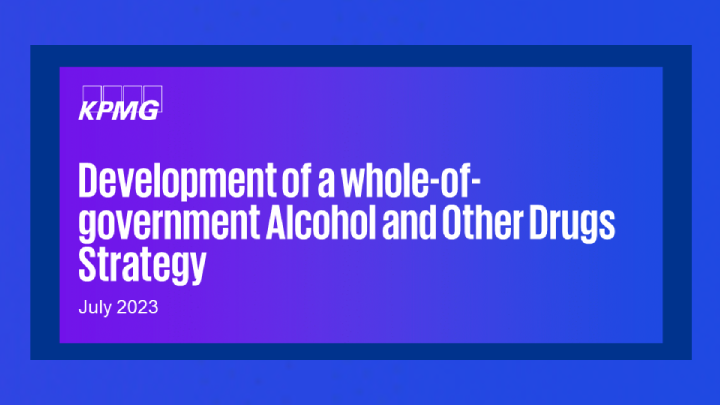
Voter concerns trump social progress
As far as those paying attention to the NSW drug law reform campaign were concerned post-last state election, the summit was coming early this term.
However, Minns then appeared in the Murdoch press in late August, only to shirk on his election promises when pressed by a reporter.
The Daily Telegraph had just run sensational reports on the ACT’s imminent late October roll out of drug decriminalisation. And on questioning the NSW premier about the policy, they were able to elicit a statement that he had “no mandate” for such reform, along with a delay to the summit.
Drug decriminalisation is the removal of criminal penalties for drug possession and self-administration of illicit substances.
Both Ice Inquiry special commissioner Dan Howard SC and NSW deputy state coroner Harriet Grahame have recommended decriminalising illicit substances in this state.
The Uniting Synod NSW.ACT launched the Fair Treatment campaign in 2018. It called on both the ACT and NSW to implement drug decriminalisation. And whilst it’s been successful in terms of the nation’s capital, the NSW major parties have been harder to persuade, as was to be expected.
A growing legal chorus
The Uniting Church’s call for drug decriminalisation is supported by over 70 NSW civil society organisations, including prominent legal bodies, such as the Aboriginal Legal Service NSW/ACT, Community Legal Centres NSW, the NSW Bar Association and Women’s Legal Service NSW.
When it was put to him that legal figures calling for drug law reform are usually criminal defence lawyers, not prosecutors, Cowdery, the NSW DPP over the 17 years to 2011, advised that he’d been a barrister focused on criminal law for 25 years prior to shifting his position in court in 1994.
“I both prosecuted and defended persons charged with drug offences, but with a preponderance of prosecutions of Commonwealth drug importation offences and the like,” explained Cowdery, who co-authored a 2015 paper calling for the abolition of the NSW deemed supply law.
The lawyer further outlined that the Perrottet government-commissioned report relating to the KPMG drug reform project he participated in last year, “seems to have disappeared without trace”, and the last he’d heard about it was an email that was singing the praises of its outcomes.
Some of the key areas it identified as needing attention at a drug summit, included the lack of culturally-appropriate services for First Nations people, a need for both person-centred and stigma-reducing approaches, as well as improving staff retention in the alcohol and other drug sector.
“My views about the need for drug law reform started to be formed in 1968 and have developed and hardened ever since, including during my time as DPP,” Cowdery made clear.
“My views weren’t shaped while I was DPP, they were reinforced by what I saw in that position,” he added. “The criminal law is ill-suited to dealing with drug use in the community.”
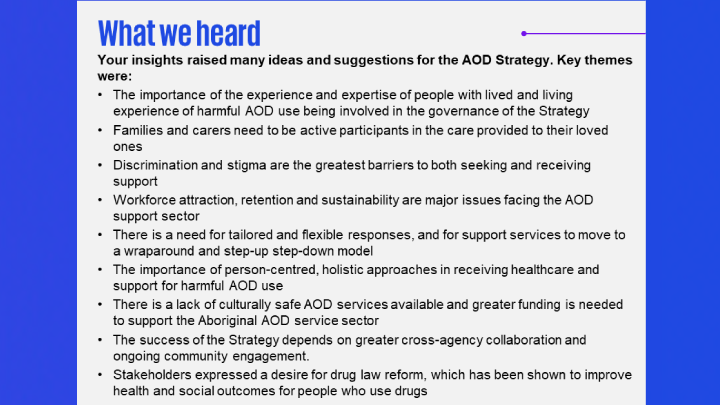
Well-informed people support reform
Prominent voices have long been calling for drug law reform from right across NSW legal, religious and medical sectors, so it’s a tragedy that the conservative press can direct a few loaded questions towards a politician elected to lead the state and then have them renege out of fear for future votes.
For those in the community calling for these reforms, these delaying tactics in relation to one of the most difficult policy areas for any politician to progress, means more unnecessary deaths, hospitalisations and random strip searches because NSW Labor is cowering to News Corp.
Alongside former NSWCCL president Nicholas Cowdery, those speaking at 2 May NSW Drug Laws Are Unjust forum, will be Uniting’s Dr Marianne Jauncey, Unharm’s Will Tregoning, Dr Ben Mostyn, Shane Price SC and ACON’s Georgina Bell.
As for what the former NSW DPP wants to see progressed in this state, Cowdery made clear that his “ambition is based on logic and a wish to reduce criminal profits”.
“It is to see all currently illicit drugs legalised, regulated, controlled and taxed with adequate community support programs in place and the criminal law available for those who would seek to profit outside the legislated regime,” outlined Cowdery.
Drug decriminalisation not only exists in Canberra, but it was implemented in Portugal in 2001, alongside solid investment in treatment, and today, that nation’s system is held up as the shining example of a humane, respectful and lifesaving approach to the issue of psychoactive substances.
Indeed, most people in the community who use illicit drugs don’t suffer any issues, and rather the most harmful aspect of their use, can be a forthcoming after arrest and the fallout from that, while for those who do need help, the illegality of use often prevents them from seeking treatment.
“I am a realist and understand that logic is not the prime motivator of policymakers and politicians,” Cowdery made clear.
“So, at the very least I would like to see a drug summit result in the decriminalisation of the growth, possession, use and transfer of all drugs in small quantities consistent with personal use,” the former NSW DPP said in conclusion.
“In addition, I would like to see the recommendations of the Ice Inquiry implemented in full, and the recommendations of the KPMG process acted upon.”




